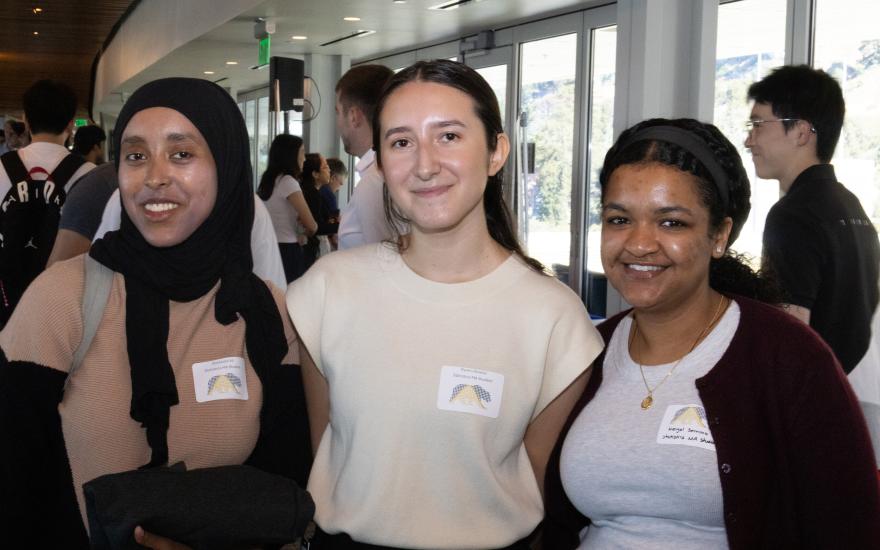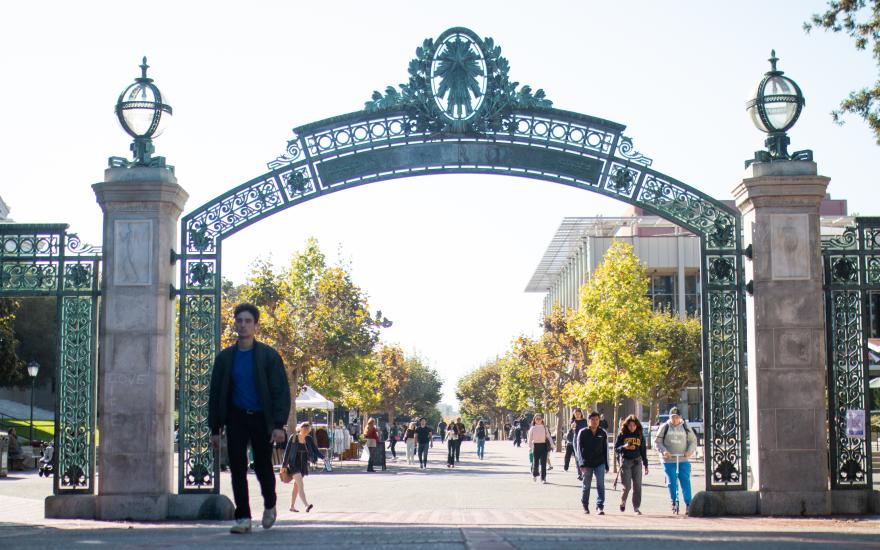
Omar Yaghi, a Jordanian-American chemist at the University of California, Berkeley, was awarded the 2025 Nobel Prize in Chemistry today, sharing it with Richard Robson of the University of Melbourne, Australia, and Susumu Kitagawa of Kyoto University, Japan.
The scientists were cited for creating “molecular constructions with large spaces through which gases and other chemicals can flow. These constructions, metal-organic frameworks, can be used to harvest water from desert air, capture carbon dioxide, store toxic gases or catalyze chemical reactions.”
Yaghi is the 28th UC Berkeley faculty member to win a Nobel Prize and the fifth winner in the past five years. Yesterday, John Clarke shared the 2025 Nobel Prize in Physics. In 2021, David Card shared the Sveriges Riksbank Prize in Economic Sciences in Memory of Alfred Nobel, while in 2020, Jennifer Doudna shared the Nobel Prize in Chemistry, and Reinhard Genzel shared the Nobel Prize in Physics.
Yaghi learned about his Nobel Prize win during a stopover on his way to a conference in Brussels, Belgium.
“As I landed, I saw there was nothing on my phone, and then I got a call,” he said. He ended up talking at length with a member of the Nobel committee, thanking them profusely, while surrounded by hurrying travelers.
“There is nothing like this, it’s an astonishment,” he said. Receiving the prize “is a feeling you don’t have often.”
His phone has not stopped ringing and buzzing since he landed. He is planning to answer all the well-wishers, while preparing to lead a scientific session tomorrow at the conference.
In the 1990s, Yaghi and his colleagues combined metals with organic molecules to build hybrid compounds that have a highly porous crystal structure, one that can readily absorb, store and release gases and vapors. He dubbed these compounds metal-organic frameworks, or MOFs, and proved that they are not only very stable structurally, but that they can be easily tuned, using different metals and different organic linkers to capture specific molecules and exclude others.
To date, more than 100,000 distinct MOF structures have been synthesized, each with different properties tuned to a specific application. Some, including versions created by Yaghi, can capture carbon dioxide from flue gases produced by power plants or industry. Others are used to pack methane into fuel tanks to power natural gas vehicles. Still others can store hydrogen and may someday equip hydrogen-fueled cars.
Within the last few years, Yaghi has created MOFs that absorb water directly from the air, even at the low humidity typical of desert environments, and has incorporated them into a water harvester. Several years ago, his lab spun off a company to market small, microwave-sized water harvesters that can capture up to 5 liters of water from the air per day in arid environments. And in 2020, he founded another company, Atoco, to deploy MOFs to fight climate change and expand access to drinking water.
He also pioneered two other large classes of porous materials: covalent organic frameworks, or COFs, which are the first 3D organic extended structures; and zeolitic imidazolate frameworks, or ZIFs, which vastly expand the capabilities of zeolite catalysts in industry. These, too, could be useful in the storage and separation of hydrogen, methane and carbon dioxide and in clean water production and delivery. Because COFs have the added ability to store charged ions, they can also work as supercapacitors with possible applications in batteries or the automotive industry.
In 2022, Yaghi was appointed the scientific director of a new research center at UC Berkeley, the Bakar Institute of Digital Materials for the Planet (BIDMaP), which will employ artificial intelligence to develop cost-efficient, easily deployable versions of MOFs and COFs to help limit and address the impacts of climate change. BIDMaP is part of the UC Berkeley College of Computing, Data Science, and Society.
Read the full story
- UC Berkeley News: UC Berkeley’s Omar Yaghi shares 2025 Nobel Prize in Chemistry





